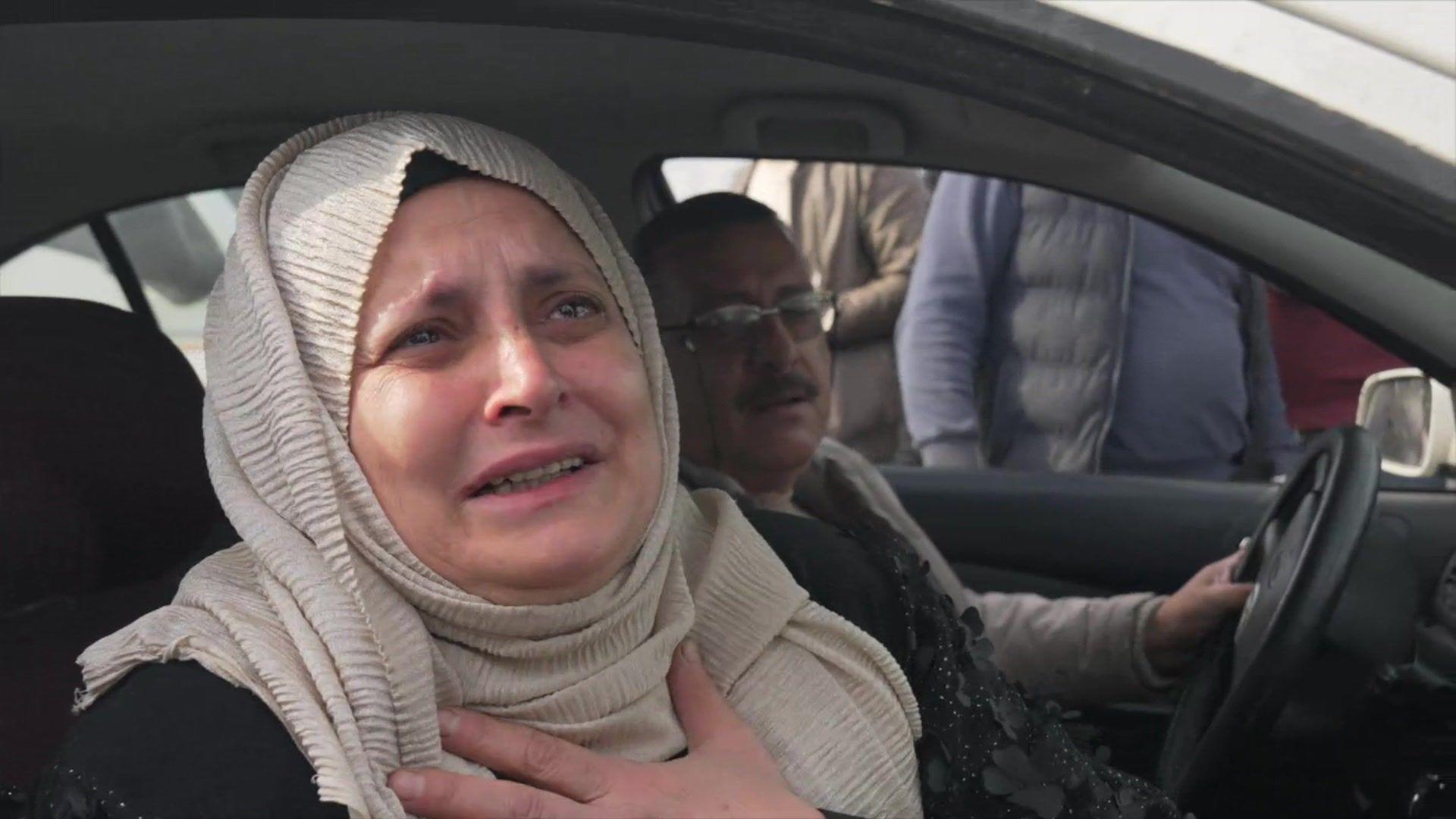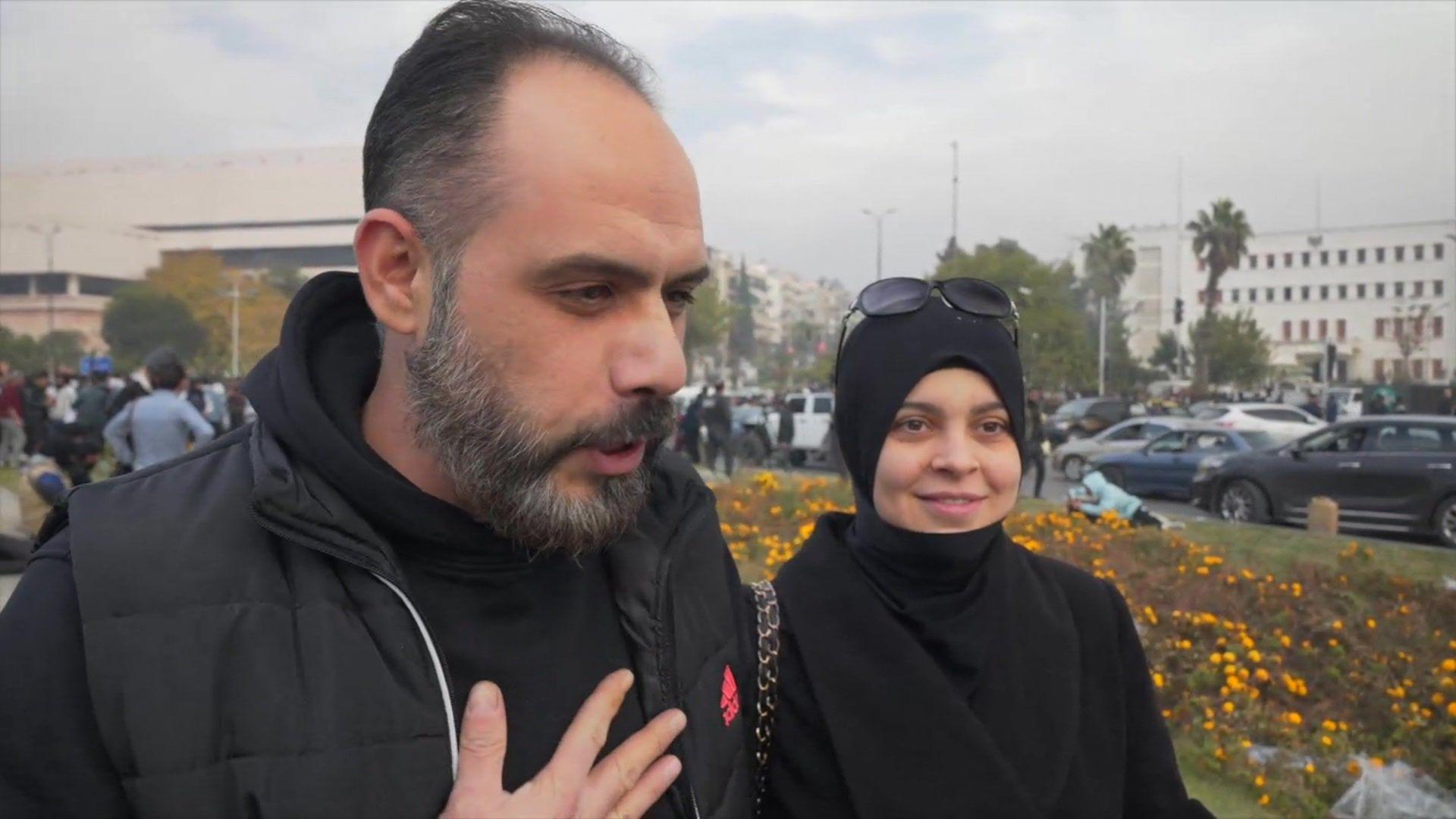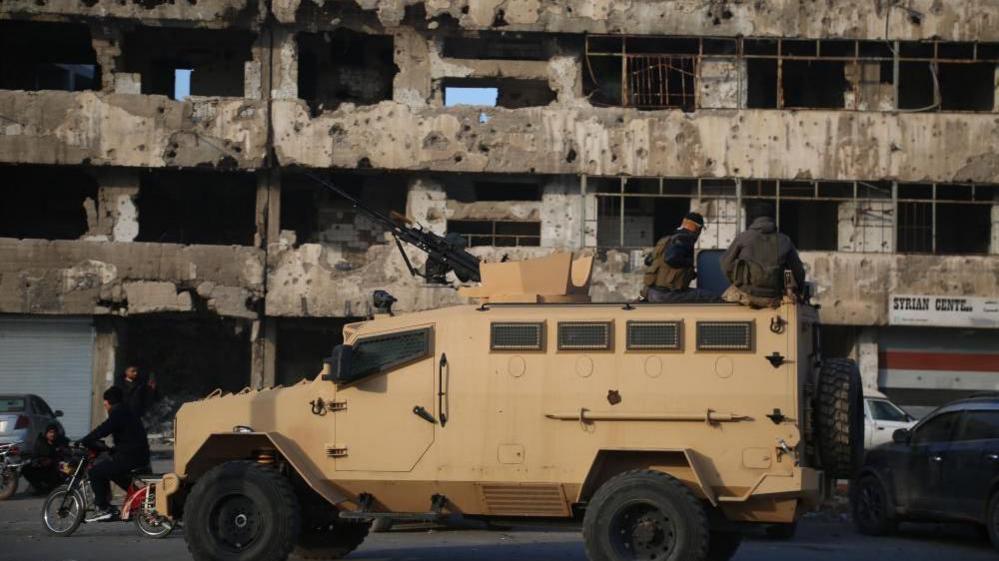'You can breathe': On the streets of Damascus after Assad

One woman told the BBC many members of her family had died under Assad's rule, some in prison
- Published
There was a snarl of cars when we arrived. We could hear chanting. Someone was waving a rebel flag. Overnight news that Damascus had fallen and Syria's president had fled spurred Syrians in Lebanon to rush to Masnaa, the border crossing closest to their capital.
We'd been planning to spend a day reporting from there, but packed a small overnight bag when we heard the Syrians had abandoned their side. Maybe we would be able to get to Damascus ourselves.
Amid the excitement around us was a tall man with curly hair who was trying to go the other way. I could see he was crying.
He told me his name was Hussein and that he was a supporter of President Bashar al-Assad. He was afraid.
"We don't know anything about what is going to happen inside. They might kill us, it's chaos," he said.
"Anybody who used to work with the regime or the army, they say they are going to give them a safe exit, but nobody knows. If it's not going to be true, they're going to pay the consequences."
He had brought his family with him, but didn't have the documents to cross into Lebanon.
An hour later, we entered Syria. The road to Damascus was wide open. As we neared the capital we could see signs of an army in retreat – military jeeps and tanks, abandoned. Army uniforms littered the road where soldiers had torn them off.
There was traffic in the streets but shops were closed. People had gathered in the central Umayyad Square, overcome by the extraordinary end to more than five decades of authoritarian rule by the Assad regime – father and son.
Armed men were firing into the air in a constant cacophony of celebration - we saw one little boy who had been injured carried away.
Civilians were driving around in their cars, flashing peace signs, saying things would be so much better now that Assad was gone. One elderly woman was crying.
"Thank you, thank you," she exclaimed as if praying. "The tyrant has fallen. The tyrant has fallen!"
Many in her family had died under Assad's rule, she said, some in prison.
Watch: BBC sees looting at Bashar al-Assad's Damascus residence
I approached a couple with four young children, their parents fairly bursting with joy.
"It's an indescribable feeling. We are so happy," said the man. "After all the years of dictatorship we have lived in our lives! We were in prison in 2014 and now we're out thank God. We won because of our men, our fighters, and now we are at the moment that we are going to build the greatest Syria!"
"We call our sisters and brothers who left the country to come back," he added. "Our hearts and homes are open for you."
The whereabouts of Assad were a mystery until Russian reports said he'd turned up in Moscow. We made our way to his Damascus residence - now a tourist attraction, stripped bare of anything valuable, of anything at all.
We saw people carrying out furniture, with no one trying to stop them. The rebels may have brought freedom, but not security.

'It's an indescribable feeling,' one man told the BBC
Looters had also been breaking into other buildings nearby – deepening anxiety about this in-between-time without a government in charge.
"The transition has to happen in a proper and correct way," said Alaa Dadouch, a 36-year-old father of three standing outside with his neighbours. "And the fact that he just left, you know…"
"Bashar al-Assad?" I prompted.
"Yes, you see I'm still scared to even mention this," he said. "But the fact that he just left, that is selfish. Our president should have taken the proper measures that are needed for him to give at least the army or the police control over those areas until a new presidency comes in."
He paused. "You know, two days back, I wasn't able to say that he's selfish, it would have been a big problem. A lot of everything is different.
"You can actually breathe, you can walk around. You can actually give your opinion. You can say what bothers you without being scared. So, yes, there is a change. I hope it's a good change. But we've been living under false hope for 13 years [of civil war]."
This country is caught between joy and fear, hoping for peace and worried about chaos.
Get in touch
How have you been personally affected by the recent events in Syria? Tell us your story.
Related topics
- Published9 December 2024

- Published8 December 2024

- Published8 December 2024
